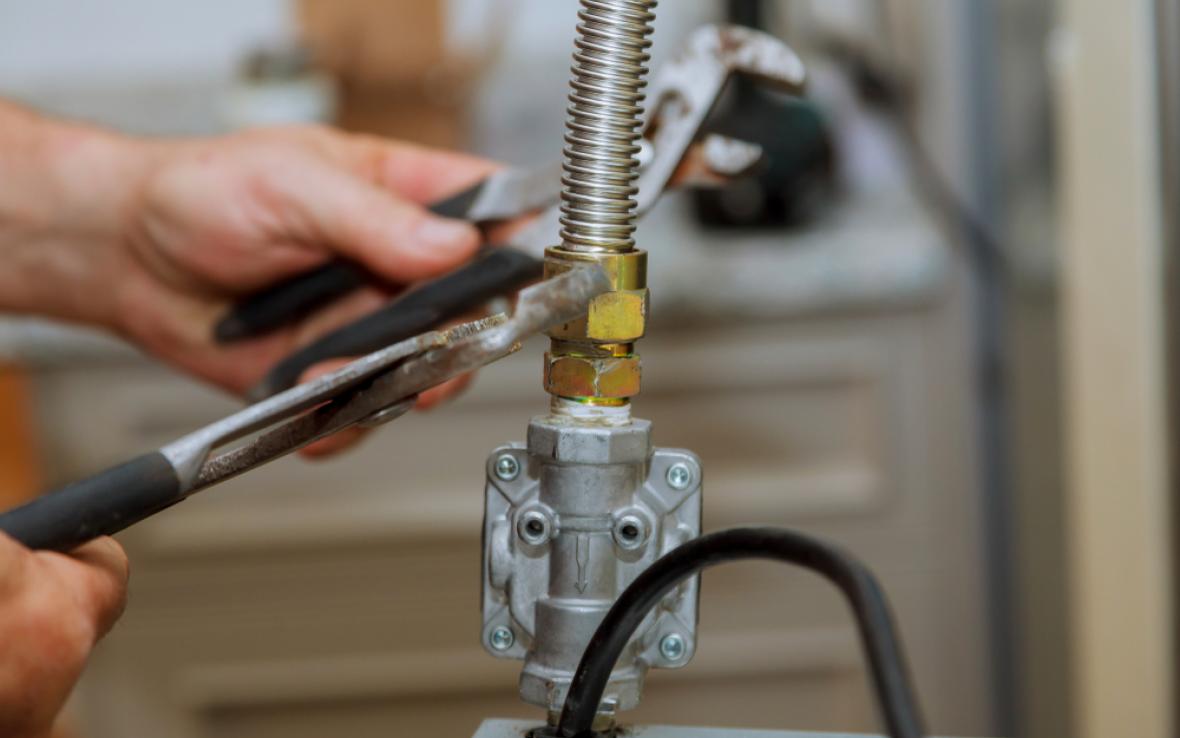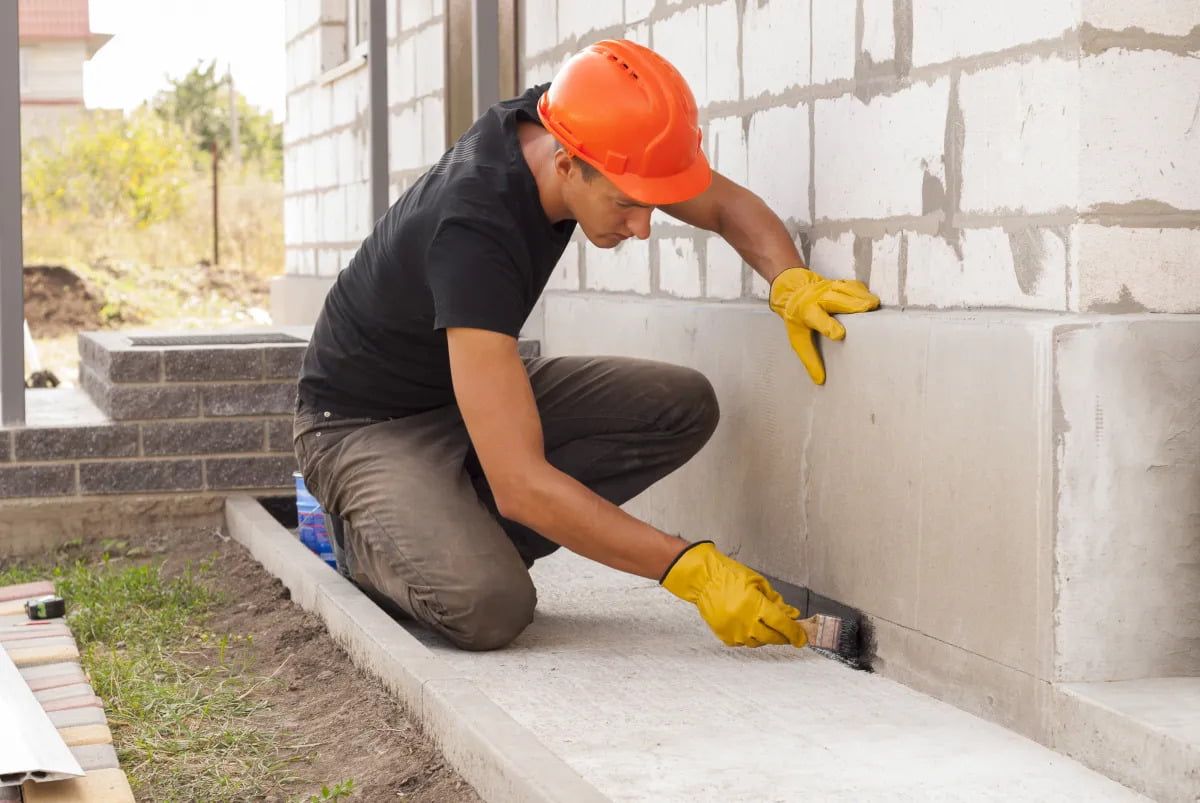Knowing how to fix a gas leak is a skill most homeowners take for granted. However, gas lines can leak in the most unexpected times, regardless of their quality. Besides, you might not get a plumber immediately to do the fixing, so knowing how to do it helps.
A plumber takes about four hours to fix a gas leak. However, this depends on how fast you or your plumber is. Some plumbers could take up to 24 hours to repair the gas line. Once you detect a leak on your gas line, contact a professional plumber to fix it.
An expert plumber will find the root cause of the leak and fix it. When picking a plumbing company, those who operate 24/7 are more reliable. Check their service quality and prices. You can visit this site to learn about why you should work with a reputable plumbing company, like the team at Clover Services.
Table of Contents
How to Detect a Gas Leak
While some homeowners wait to see gas passing through the gas line to know there is a gas leak, this won’t be the case. The most common ways to discover a gas leak are smelling, hearing a hissing sound, and increasing gas bills.
1. Smell
You probably have a gas leak if your house smells like rotten eggs. The suppliers add Ethyl Mercaptan to the gas, which gives it the rotten eggs smell. This ensures easy detection of a leak because LPG is colorless and odorless.
The homeowner should therefore contact the plumber immediately. The expert will detect the cause of the problem and fix it.
2. Hearing
It is hard to tell a gas leak through hearing, especially if the broken pipe is far. However, if you hear a hissing noise at any point of your gas line, your gas could be leaking, and you should fix it.
3. Increased Gas Bills
Some leaks are small and hard to detect, but you can know them by changing your gas bill. However, use the change in cubic meters or liters to know and not the prices. Gas prices fluctuate sometimes, and they could have gone up.
4. Flame Color
Your burners should burn in a blue and not red or yellow flame. However, although a yellow or red flame could mean that you must clean your burners, it could also indicate a gas leak. Look for any burner problems and call a plumber to fix your line.

5. Dying Plants
Another sign of a leaking gas pipe is drying and dying plants. Plants are sensitive to atmospheric changes. If the buried gas line near your balcony corrodes and leaks, the trees around will start drying.
Also, indoor plants could start deteriorating if there is a gas leak. First, ensure no other causes of the drying and dying, and then call a plumber to test your pipes.
How to Fix a Gas Tank Leak in Seven Steps
LPG gas contains carbon monoxide, a health threat to you and your family. Besides, a leaking gas line can lead to house fires if you light up the burners.
Therefore, homeowners should immediately contact professional plumbers to fix the leaking gas lines. You can also repair the gas line yourself by following these steps.
1. Switch Off the Gas
Once you detect a gas leak, the first thing to do is switch off the gas. Operating the line with flowing gas can cause fires. Besides, inhaling the gas is dangerous to your body, and it can cause dizziness or, worse enough, death.
2. Find the Leak
Once the gas supply is turned off, start finding the leak. Ensure you wear a mask and gloves for protection when working near the leaking pipe. It is also best to let an expert perform this step.
3. Remove Any Extra Gas
Gas leaks mainly occur due to high pressure on the pipe. If this is the cause, get a stronger pipe to hold the pressure and replace it with the existing pipe. In addition, you need the right plumbing tools to disconnect the leaking gas line from the regulator.
4. Clean the Gas Line
If you have not checked on your gas line for a long time, impurities and rust must have built up. These interrupt the gas flow and can lead to a gas leak. When repairing the leaking pipe, ensure you clean the rest of the gas line.
Use sandpaper to scrub off the impurities and rust to make the pipes even. Once the contaminants and rust fall off, use acetone to wash the lines and completely clean the impurities.
5. Seal the Leak
Now that you have replaced and cleaned the pipes, you can seal the leaking part. Use epoxy to seal the broken pipe. When fitting them again, ensure the fit is not too tight to avoid pressure build-up.
6. Test the Line
Your leak fixation is not yet over until you test the lines and ensure there are no more leaks. You also don’t want to wear the protective covering without ensuring everything is working correctly. If there is no gas leak, you can replace your covers.
7. Replace the Covers
Congratulations on fixing your leaking gas line. If the leaking stops, replace the covers. Repairing the line keeps the homeowners at peace and safe. However, if your pipes are problematic, hire a professional plumber to deal with them.
The plumbers can detect the primary cause of the gas leaks and advice on what to do best. For example, if your gas lines are too small for the pressure, you might need to replace all of them.
Ensure you also do gas line inspections yearly to prevent leaks. The plumber can detect any minor signs of leaks during the inspection and repair them before they become life-threatening.
How Long Does It Take To Fix A Gas Leak on Average?
There is no exact time on the duration it can take to repair a gas leak. However, if you hire a professional plumber, they could take as little as 30 minutes to find the reason for the leak and fix it. Other plumbers take as long as 4 hours to complete the process.
Final Words
Gas is essential to the home, and knowing how to fix a gas leak protects you and your family from many dangers. Gas leaks lead to house fires and other fatal health complications, hence the need for fast repairs. However, you can hire a professional plumber to repair the line.
Tags: Gas Leak



